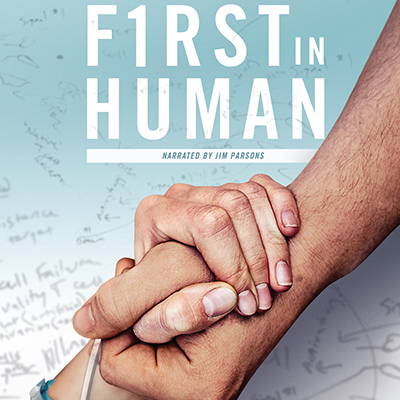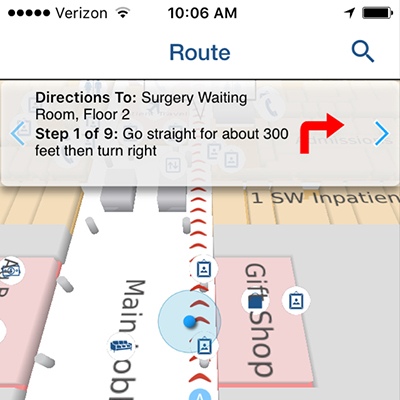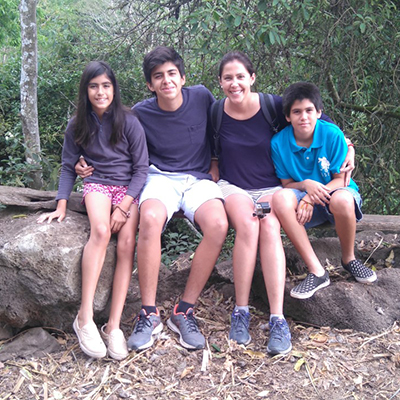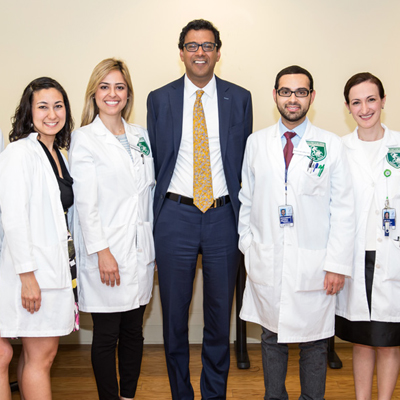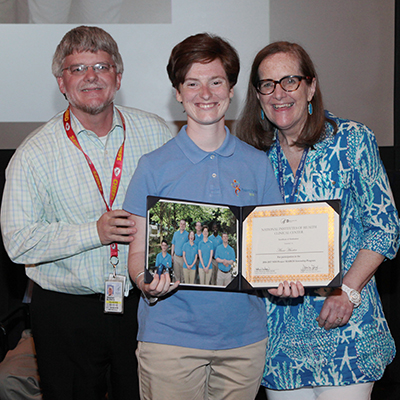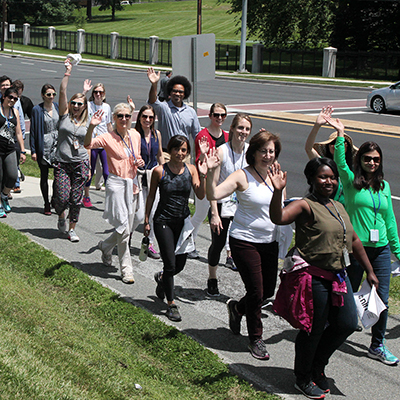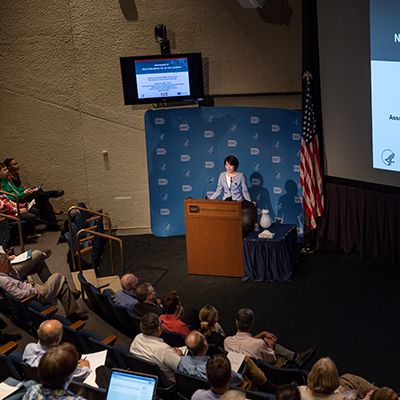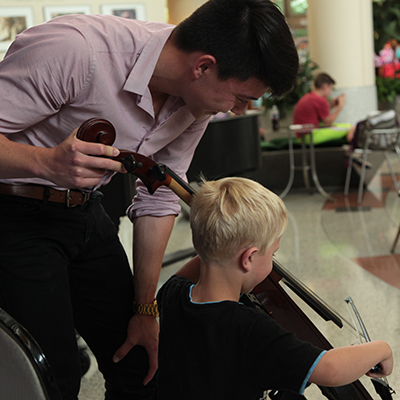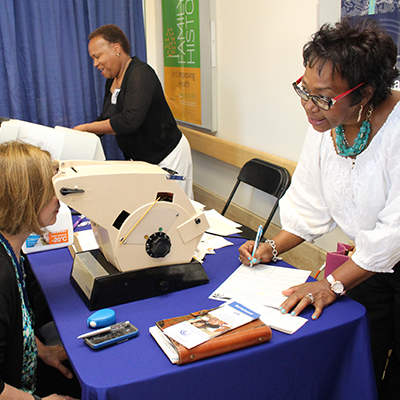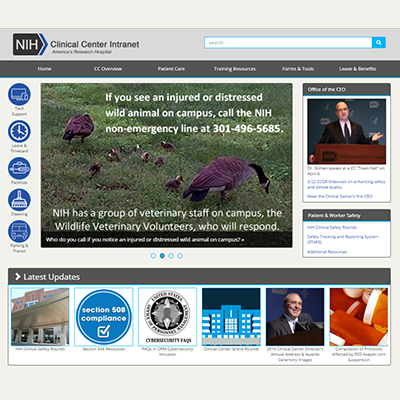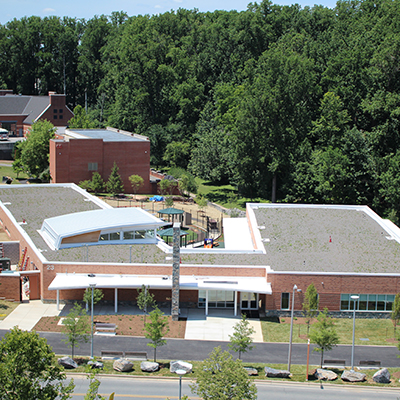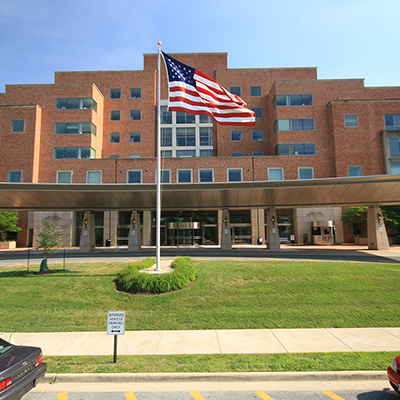First in Human: Discovery Channel documentary on the NIH Clinical Center airs Aug. 10, 17, 24
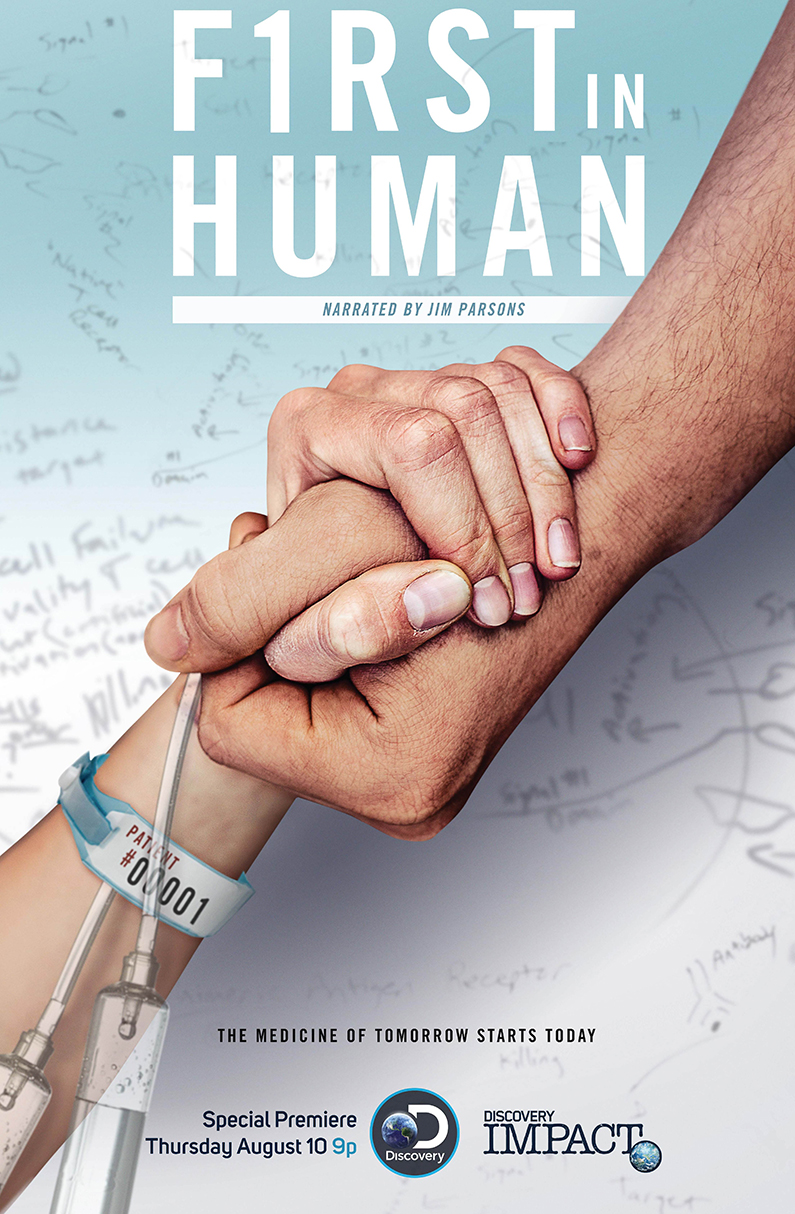
"I know that everyone who watches 'First in Human' will feel the same sense of pride I did when I discovered this incredible institution that our country created." - Jim Parsons, documentary narrator
On Aug. 10, the Discovery Channel will premiere a three-part documentary series on the NIH Clinical Center Building 10. The program, called "First in Human," highlights the innovation and hard work that takes place in the Clinical Center, depicts how challenging illness are diagnosed and treated, and provides an inside look at the successes and setbacks that are a part of experimental medicine.
The NIH has worked with the Discovery Channel to produce the documentary featuring the amazing research, patient care, spirit and dedication that abounds at the Clinical Center. "First In Human" represents the first time cameras have embedded for over a year in the hospital and followed first in human patients throughout their trial.
The documentary is scheduled to air on the Discovery Channel Aug. 10, 17 and 24 at 9 p.m. ET/PT. The series will be narrated by actor Jim Parsons ("The Big Bang Theory," "Hidden Figures"). Parsons expressed enthusiasm about the work conducted at the Clinical Center.
"I know that everyone who watches ‘First in Human' will feel the same sense of pride I did when I discovered this incredible institution that our country created," Parsons said. "I hope viewers will share the sense of gratitude and awe that I felt when learning about the human beings who bravely put their lives in the hands of some of our most innovative scientists and doctors as they search together for the medicines and cures that give all of us fuller, longer lives. This is truly the story of how we, as human beings, function: both at an elemental level and at our most profound."
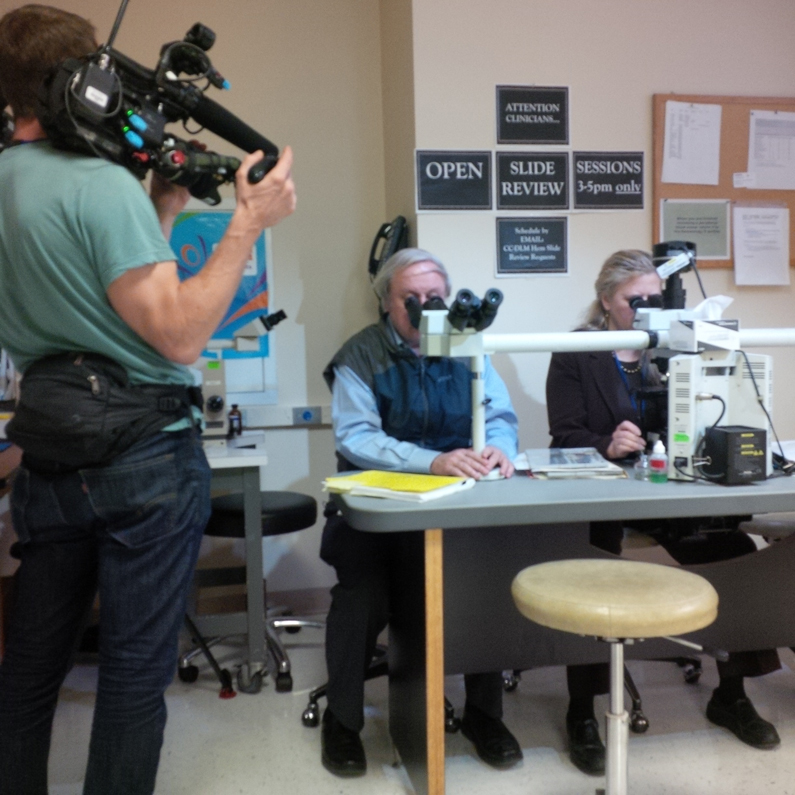
The doctors leading first in human trials at the Clinical Center are using treatments that are brand new with outcomes that are unknown. Often, they can only partner with patients who have exhausted all other options current medicine has to offer. This doctor-patient partnership is utterly unique to medicine: whatever the outcome, each of these brave "first in human" volunteers immediately becomes part of medical history.
Clinical Center Chief Executive Officer Dr. James K. Gilman added, "The unique partnership and respect we have with our patients is key to making the discoveries that improve medicine across the country and around the world. I am especially proud that we have this opportunity to share with the American people how their investment in research provides a benefit to us all."
Careful Coordination: A Behind The Scenes Look at Production
The concept for the documentary was brought to NIH by John Hoffman, currently the executive vice president of documentaries and specials for Discovery Communications. Part of what gave the Clinical Center confidence to allow the crews access was that Hoffman has a track record of producing quality documentaries with NIH, including "Sleepless in America," "The Weight of the Nation," "The Alzheimer's Project" and "Addictions." Despite the previous working relationship, there was still exhaustive pre-production planning and a Memorandum of Understanding between the NIH, Discovery Communications and the production company, McGee Media.
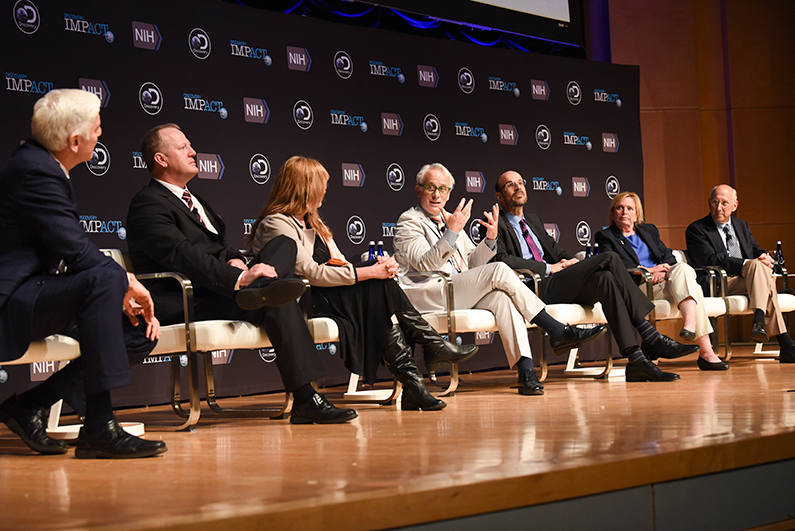
The Clinical Center leadership closely coordinated with the NIH institutes and centers, the NIH Office of the Director and departments within the research hospital that agreed to filming. Intramural investigators across a handful of institutes and centers were heavily involved. Under the direction and supervision of the Clinical Center Office of Communications and Media Relations (OCMR), three camera crews videotaped staff and patients throughout the hospital every day. More than 125 patients opened their lives to the cameras to document the reality of clinical trials, including their arrival to NIH, CT/MRI scans, procedures in the operating room, bone marrow biopsies, test results and more. In addition, more than 1,100 staff and guests/family consented to participate.
While providing technical assistance and guidance to the Discovery Channel to aid the show's accuracy and success, the Clinical Center remained firmly committed to protecting the privacy and safety of patients and staff. No one was filmed without their advance, written, informed consent. Further, all Discovery staff working on-site completed a special Clinical Center orientation, safety and privacy training. At the end of the training, they signed an affirmation that they understood what was discussed and the importance of protecting patient privacy.
The OCMR also closely coordinated on a daily basis with senior leaders, nurse managers, care providers, hospital epidemiology and others in regards to requests to film and the date, time, location and description/who was involved with the event or procedure.
Molly Freimuth, media lead for the OCMR and a key manager of the project, said "As the biggest television project the NIH has hosted, we have worked hard to showcase the amazing medical advances conducted at the Clinical Center. Our greatest reward will be helping more people learn about the work we do and help more patients who have nowhere else to turn to find a place that may be able to help."
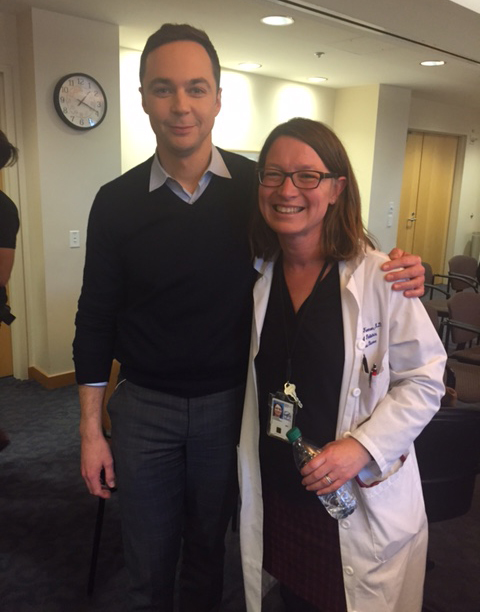
Take Action: Engage with NIH
To celebrate the forthcoming broadcast, all NIH staff are invited to a special one-hour preview of the documentary on Aug. 3, 1:00-3:00 p.m. in Masur Auditorium, followed by a panel discussion. The screening will also be streamed and archived on videocast (NIH Only).
Prior to the air date, the NIH will be hosting a twitter chat on Aug. 9 from 1-2 p.m. ET with NIH Director Dr. Francis Collins and Gilman. In addition, the NIH will be live tweeting each of the three episodes using #FirstinHuman to help educate the public about how biomedical discoveries make it from the lab to the bedside.
In addition to participating in a clinical trial, viewers inspired by the series can take action to support the NIH Clinical Center effort by:
- applying for a job/training opportunity;
- volunteering at the NIH Clinical Center;
- donating to the NIH Blood Bank;
- collaborating on a research study.
Learn more about the "First in Human" documentary and additional resources at the Clinical Center webpage and the NIH webpage.
